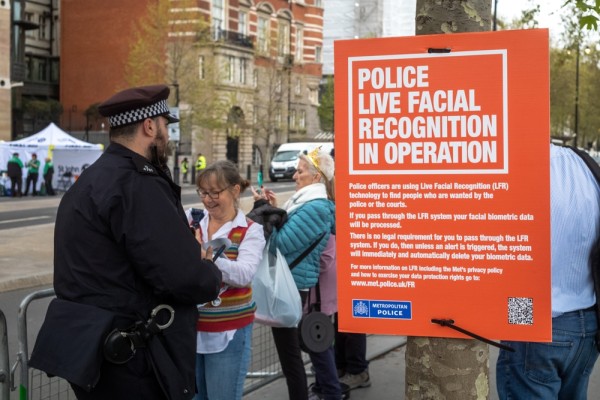Parliament debates use of live facial recognition by police
19/11/2024 | UK Government
In a speech on Tuesday, 19 November 2024, hosted by the National Police Chiefs' Council (NPCC) and Association of Police and Crime Commissioners (APCC), UK Home Secretary Yvette Cooper set out her plans to deliver significant policing reforms, including a new National Centre of Policing to harness new technology and forensics with the aim of ensuring police forces are better equipped to tackle crime.
The speech followed a parliamentary debate on live facial recognition (LFR) technology on Wednesday, 13 November, during which Policing Minister Dame Diana Johnson acknowledged the current lack of a comprehensive legal framework governing its use.
During the debate, Dame Diana called for a careful examination of the support needed from the government and Parliament to regulate LFR technology while safeguarding against potential abuses.
The use of LFR has drawn criticism, with MPs raising concerns over the technology's impact on marginalised communities, particularly regarding potential misidentification and the absence of a legal framework to ensure transparency and accountability in its use.
In response, former Policing Minister Chris Philp reiterated research by the National Physical Laboratory in testing that resulted in a (0.6) setting where "there was no statistically significant difference in the facial recognition technology's accuracy across" different demographic groups.
Philp urged Dame Diana "not to halt the use of the technology" and to "continue supporting the police to roll it out."
In related news, the Open Rights Group (ORG) outlined its concerns over plans to increase police data powers as the Data (Use and Access) Bill (DUA Bill) returned to the House of Lords for its second reading.
Among its concerns, the ORG highlighted:
- Clause 81 of the DUA Bill will remove safeguards compelling police to provide a reason for accessing and disclosing records.
- Schedules 4 and 5 remove a requirement to consider legitimate expectations of individuals whose data is being processed.
- The Bill will also remove the right to have human reviews of decisions based solely on automated processing that has a legal or otherwise significant effect on someone's life.

What is this page?
You are reading a summary article on the Privacy Newsfeed, a free resource for DPOs and other professionals with privacy or data protection responsibilities helping them stay informed of industry news all in one place. The information here is a brief snippet relating to a single piece of original content or several articles about a common topic or thread. The main contributor is listed in the top left-hand corner, just beneath the article title.
The Privacy Newsfeed monitors over 300 global publications, of which more than 6,250 summary articles have been posted to the online archive dating back to the beginning of 2020. A weekly roundup is available by email every Friday.

